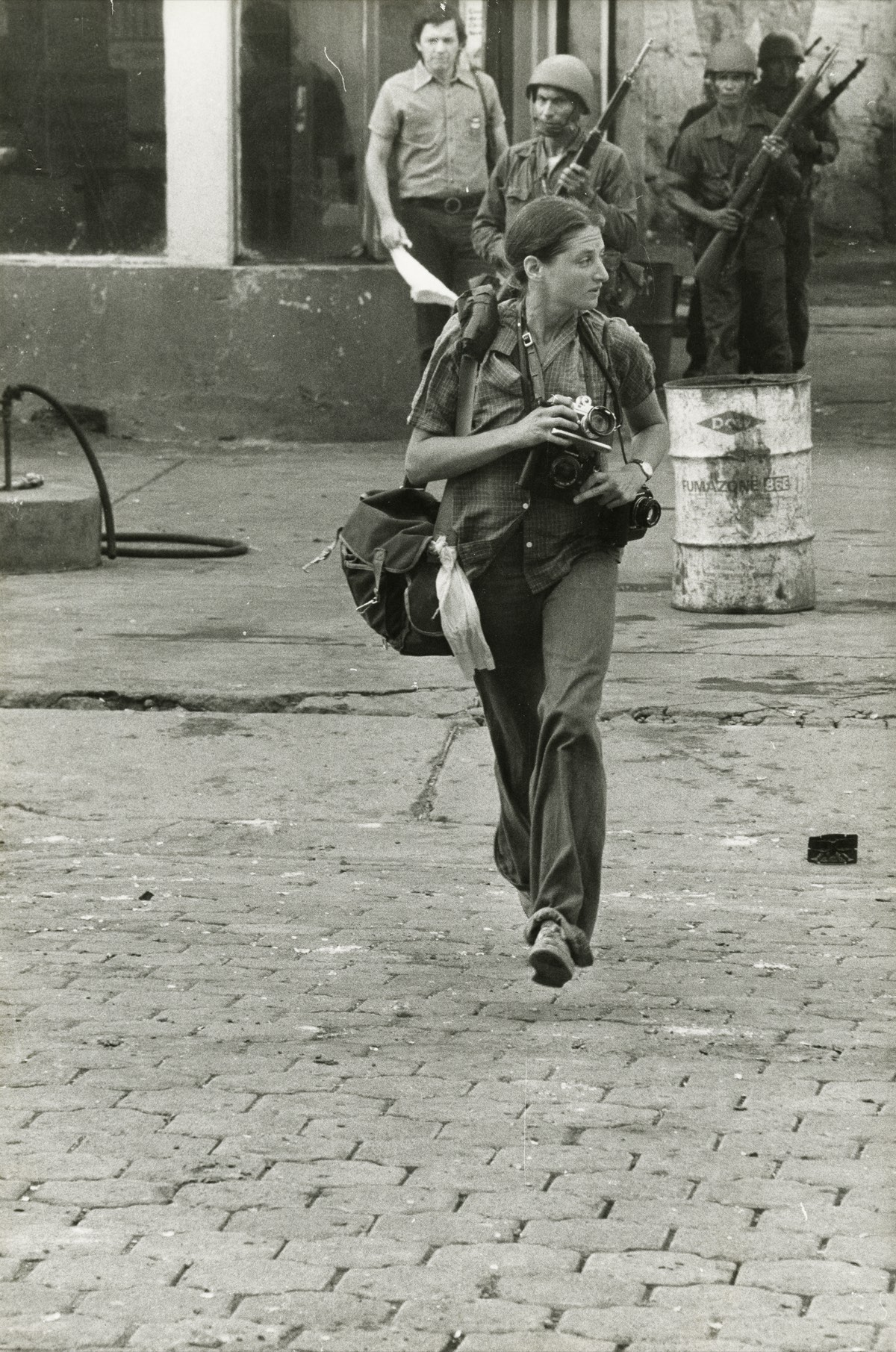Susan Meiselas photography has carved out a significant niche within the realm of documentary photography, particularly notable for its deeply personal narratives and social observations. As a pioneering figure in the field, Meiselas’s work encapsulates moments of human connection and the complexities of representation, all exemplified in her acclaimed series, ’44 Irving Street, Cambridge, MA’. Currently showcased at the Harvard Art Museums, this photography exhibition highlights her journey as a storyteller through images, reflecting on her transformative experiences during her time as a student at Harvard. Through compelling visual accounts and poignant narratives, Meiselas emphasizes the intricate relationships that can emerge between subjects and their portrayed environments. With her affiliation as the president of the Magnum Foundation, Meiselas continues to inspire and lead discussions on the importance of collaborative storytelling in contemporary art.
In the captivating world of visual storytelling, Susan Meiselas’s work stands out, particularly in her documentary photography that resonates with viewers through its intimate portrayals and rich histories. The ’44 Irving Street, Cambridge, MA’ project is a testament to her ability to weave personal stories from the lives of her subjects, making each photograph a window into their experiences. Currently featured in a photography exhibition at the Harvard Art Museums, this series illustrates the profound connections Meiselas establishes with her subjects, reflecting both their individuality and the shared threads of humanity. As she continues to explore themes of representation and connection, her contributions as a filmmaker and leader at the Magnum Foundation further enhance the discourse surrounding contemporary photography. Meiselas’s engagement with her audience invites a deeper understanding of the socio-cultural landscapes captured within her lens.
Exploring the Impact of Susan Meiselas’ Documentary Photography
Susan Meiselas’ documentary photography goes beyond mere visual representation; it captures the intricate stories of individuals and communities. Her early series, ’44 Irving Street, Cambridge, MA,’ exemplifies how photography can become a tool for connection and social discourse. Through her lens, Meiselas brings to light the lived experiences of her subjects, infusing traditional documentary practices with a personal touch that reflects their narratives. This approach has allowed her to not only document reality but also to challenge perceptions about identity and emotional expression within a photographic frame.
In a world saturated with images, Meiselas’ work stands out for its authenticity and emotional depth. By focusing on the residents of her boarding house, she humanized her subjects, transforming them from mere figures in a photograph into complex characters with distinct stories. This commitment to showing the nuances of her subjects has not only influenced her career but has also left a lasting mark on the field of documentary photography, inspiring future generations to explore storytelling through a lens.
The Role of Community in Meiselas’ Work
Community plays a crucial role in Susan Meiselas’ photography, particularly in her ’44 Irving Street, Cambridge, MA’ series. During her time in the boarding house, she engaged with her neighbors, inviting them to share their stories and personal spaces with her camera. This interactive approach helped her form a deeper understanding of their lives, emphasizing photography as a collaborative and participatory process. The resulting images are not just photographs; they serve as a snapshot of community dynamics and individual identities, fostering a shared sense of belonging.
Moreover, the letters written by her subjects regarding their portraits reflect the dialogue sparked by her work. These interactions highlight the importance of representation and connection in photography. Meiselas’ ability to elicit genuine responses emphasizes how documentary photography can explore and elevate community voices, shedding light on the experiences that often remain overlooked. Her focus on collaboration and community engagement remains a cornerstone of her practice, underscoring the power of photography as a medium for storytelling.
Documentary Photography at the Harvard Art Museums: A Retrospective of Susan Meiselas’ Legacy
The exhibition of Susan Meiselas’ work at the Harvard Art Museums offers a retrospective glimpse into her pioneering contributions to documentary photography. With the ’44 Irving Street’ series as a focal point, the exhibit presents a rich exploration of how urban life and personal narratives interweave through the lens of photography. Meiselas’ black-and-white prints not only capture the essence of her subjects but also stimulate conversations about identity, community, and the role of the photographer in representing those narratives.
Visiting the exhibition allows viewers to appreciate the delicate interplay between the photographer and their subjects, reinforcing the importance of context in documentary photography. The accessibility of accompanying written letters further enhances the experience, enabling viewers to engage with the subjects’ thoughts and feelings. This dynamic relationship exemplifies a modern approach to documentary practices, where viewers are invited to contemplate the ethical dimensions of representation in art.
The Educational Influence of Susan Meiselas
After her groundbreaking work in ’44 Irving Street, Cambridge, MA,’ Susan Meiselas transitioned into education, where she incorporated photography into her teaching methods. Working with students in an experimental school in the South Bronx, she leveraged photography to empower children, encouraging them to narrate their stories through images. By providing simple pinhole cameras and guiding them in capturing their surroundings, Meiselas emphasized narrative over technique in her teachings. This hands-on approach reinforced the idea that photography is an accessible form of expression, fostering creativity and self-exploration among her students.
Meiselas’ educational philosophy remains rooted in the core principles of documentary photography: connection, narrative, and representation. Through her work with young students, she illustrated how photography serves as a platform for sharing personal stories and building community through mutual understanding. This dedication to education and mentorship not only shapes the next generation of photographers but also highlights the transformative power of storytelling through imagery.
Reflecting on Power and Representation in Photography
A central theme in Susan Meiselas’ work is the exploration of power dynamics within photography, particularly how representation can both empower and exploit. Her engagement with subjects during the ’44 Irving Street’ project shed light on the ethical considerations inherent in documentary practices. By giving her subjects a voice through written responses to their portraits, Meiselas invites discussion about self-perception and the implications of being photographed. This approach fosters a collaborative relationship between the photographer and the subject, challenging traditional notions of authority in the photographic process.
Furthermore, Meiselas’ more recent work, including her co-authored book ‘Collaboration: A Potential History of Photography,’ takes this dialogue further by examining the collective nature of photographic representation. It raises critical questions about who gets to tell whose story and the responsibilities that come with it. Through her insistence on collaboration and inclusivity, Meiselas elevates the conversation around representation, stressing that ethical storytelling in photography not only reveals truths but also respects the humanity of those being photographed.
Documentary Photography: A Personal Journey of Connection
For Susan Meiselas, documentary photography has always been more than just capturing beautiful images; it is an avenue for personal connection and storytelling. In tracing her journey from a novice photographer to an acclaimed artist, she emphasizes that her initial project helped lay the foundation for her career. The act of photographing her neighbors not only allowed her to document their lives but also served as a catalyst for understanding the complexities of their experiences. This journey forged her identity as a photographer committed to fostering meaningful connections.
Thus, Meiselas’ work is a testament to the idea that every photograph tells a story—alluding to her belief that documentary photography is an intimate exchange between the photographer and their subjects. Her innovative methods encourage others to explore the richness of their communities and to consider the stories that lie within. In doing so, Meiselas inspires a new generation of photographers to cultivate a practice rooted in empathy, engagement, and the acknowledgment of the shared human experience.
The Future of Documentary Photography
As documentary photography continues to evolve, Susan Meiselas’ influence shapes its trajectory, urging photographers to reflect on the responsibility that comes with representing others. The rise of digital technology and social media presents new opportunities for storytelling, yet it also challenges photographers to navigate ethical considerations in their work. Meiselas advocates for a conscious approach to representation that prioritizes community engagement and authentic voices, encouraging innovative practices that reflect the diverse realities of contemporary life.
The future of documentary photography rests on the ability to adapt while maintaining commitment to its core values—truthfulness, connection, and representation. As emerging photographers explore new mediums and platforms, the lessons gleaned from Meiselas’ work remind them of the profound impact that thoughtful engagement can have on storytelling. In a world where stories are constantly shared, the pursuit of authenticity and respect in documentary practices will remain essential in ensuring that every image continues to convey meaningful narratives.
Understanding the Importance of Exhibitions in Photography
Photography exhibitions, like that of Susan Meiselas’ work at the Harvard Art Museums, play a vital role in showcasing the significance of visual storytelling. They provide a platform for artists to present their stories while engaging the public in a dialogue about the medium’s impact. Exhibitions not only display the technical aspects of photography but also highlight the emotional and social narratives that the images convey. By viewing a cohesive body of work, audiences can better appreciate the themes and messages that the photographer aims to communicate.
Furthermore, exhibitions like this allow for critical engagement with the artwork. Visitors are prompted to not only view the photographs but also to reflect on the broader context surrounding them. In Meiselas’ case, her exhibition encourages discussions around representation, individuality, and community connection, elements that resonate deeply with the audience. The immersive experience of an exhibition fosters a deeper understanding of photography as a medium and reaffirms its ability to provoke thought and inspire change.
Susan Meiselas: A Pioneer of Narrative in Photography
Susan Meiselas is widely recognized as a pioneer in the realm of narrative documentary photography. Her work blurs the lines between artistry and social commentary, exemplified by her iconic ’44 Irving Street, Cambridge, MA’ series. Through her photographs, Meiselas unveils layers of narrative that define her subjects, capturing their humanity in moments that resonate beyond the frame. Each photograph serves as a conversation starter, allowing viewers to engage with complex themes of identity, belonging, and representation.
Meiselas’ commitment to narrative has not only shaped her career but has also set a benchmark for aspiring photographers to explore the stories behind their images. By emphasizing the need for a dialogue between photographer and subject, Meiselas invites a participatory approach, ultimately enriching the art of documentary photography. As she continues to innovate and inspire, her legacy will undoubtedly shape the future dialogues surrounding narrative photography and our understanding of community and identity.
Frequently Asked Questions
What is the significance of Susan Meiselas’ ’44 Irving Street, Cambridge, MA’ in documentary photography?
Susan Meiselas’ ’44 Irving Street, Cambridge, MA’ series plays a crucial role in her career as a documentary photographer, showcasing her innovative approach to capturing the personal spaces and stories of her neighbors during her time in a Cambridge boarding house. This work highlights themes of connection and representation, making it a significant example in the realm of documentary photography.
How did Susan Meiselas’ education at Harvard influence her photography?
Susan Meiselas’ education at Harvard, particularly a course with a sociological focus, significantly influenced her approach to photography. It inspired her to create the ’44 Irving Street, Cambridge, MA’ series, which emphasized personal connection and narrative storytelling through documentary photography. Her experiences at Harvard laid the foundation for her future work as a prominent photographer.
Where can I view Susan Meiselas’ photography exhibition?
You can view Susan Meiselas’ photography exhibition, which includes her iconic ’44 Irving Street, Cambridge, MA’ series, at the Harvard Art Museums. The exhibition will be on display until April 6, featuring her exploration of personal narratives through documentary photography.
What themes does Susan Meiselas explore in her documentary photography?
In her documentary photography, Susan Meiselas explores themes of personal connection, representation, and the nuances of human interactions. Her work often reflects the complexities of how subjects relate to their environment and themselves, as seen in her influential ’44 Irving Street, Cambridge, MA’ series.
What did Susan Meiselas learn from her subjects in the ’44 Irving Street’ project?
From the ’44 Irving Street, Cambridge, MA’ project, Susan Meiselas learned about the power of connection through photography. By engaging with her subjects and capturing their responses to their portraits, she discovered the significance of narrative and personal reflection in her documentary photography.
How did Susan Meiselas’ work with students incorporate photography?
After her ’44 Irving Street’ project, Susan Meiselas incorporated photography into her work with elementary school students in the South Bronx. She introduced them to pinhole cameras, encouraging them to use photography to tell stories about their surroundings and community, reinforcing the narrative aspect of documentary photography.
What is the Magnum Foundation and its connection to Susan Meiselas?
The Magnum Foundation, where Susan Meiselas serves as president, is an organization dedicated to supporting documentary photography and the photographers behind the lens. Her leadership at the foundation reflects her commitment to advancing the field and fostering collaborative projects in documentary photography.
What impact did ’44 Irving Street, Cambridge, MA’ have on Susan Meiselas’ career?
’44 Irving Street, Cambridge, MA’ was foundational in shaping Susan Meiselas’ career as a documentary photographer. It marked the beginning of her exploration into personal narratives, connection, and representation, themes that would continue to define her work in the documentary photography genre.
| Aspect | Details |
|---|---|
| Background | Susan Meiselas studied at Harvard and started her photography career with the ’44 Irving Street’ series. |
| Photography Style | Meiselas is known for documentary photography, focused on personal connections and individual stories. |
| Key Themes | Her work explores themes of connection and the power dynamics of representation. |
| Exhibition | Photographs from the ’44 Irving Street’ series are displayed at Harvard Art Museums until April 6. |
| Impact of ‘Irving Street’ Project | The series shaped her artistic vision and practices throughout her career. |
Summary
Susan Meiselas photography has been pivotal in shaping the narrative of documentary art. Her work, particularly the ’44 Irving Street’ series, reveals not just her technical skill but also her commitment to storytelling through human connection. This project marked the beginning of her engagement with photography as a relational experience, where the interaction between the photographer and the subjects creates a meaningful dialogue. As she continues to explore the balance of representation and inclusion in her work, Susan Meiselas remains a significant figure in contemporary photography.



